The 16th
LaureateMusic
Krzysztof Penderecki
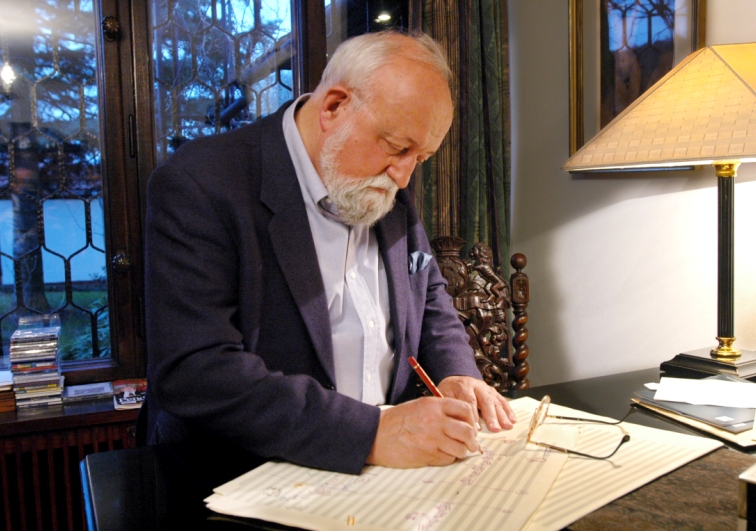
Krzysztof Penderecki, one of the most significant composers of our time, was born in Debica, Poland, near Krakow in 1933. He was brought up during the Nazi occupation and strove to develop a musical vocabulary that would adequately communicate his sense of postwar alienation, horror at the crimes of the Holocaust and the cold war and, paradoxically, his hope for the future.
The most striking characteristic of Penderecki's music, apart from its expressive power, is its sheer magnitude. Dominating his output is a gigantic St. Luke’s Passion sequence in the mold of Bach's masterworks--a dozen large works composed over a period of twenty years that deal with the problems of violence, suffering, and death. A tribute to the effectiveness of his work is that despite their physical, logistical, and economic difficulties, they are performed so often.
Biography
Krzysztof Penderecki, one of the most significant composers of our time, was born in Debica, Poland, near Krakow in 1933. He was brought into contact with music early by his father who was a lawyer and an enthusiastic violin player. Penderecki studied composition privately and at the Krakow Academy of Music. He was brought up during the Nazi occupation and strove to develop a musical vocabulary that would adequately communicate his sense of postwar alienation, horror at the crimes of the Holocaust and the cold war and, paradoxically, his hope for the future.
Penderecki came to prominence in 1959 when three of his works won first prizes in a national competition organized by the Polish Composers' Union. His reputation abroad spread through performances of works such as Anaklasis (1960) and Threnody for the Victims of Hiroshima (1960). The latter piece, as well as Passion According to St. Luke (1966) found unusually wide audiences for contemporary works. Threnody for the Victims of Hiroshima was awarded the UNESCO prize, and is one of his best known and most often performed compositions.
In Threnody for the Victims of Hiroshima Penderecki developed effects that were considered experimental at the time, such as tone clusters, with each of 52 musicians playing a different note, creating a "cloud" or "wall" of sound with no discernible melody, but considerable emotional impact that evoke the experience of nuclear war. Other sections of the piece sound like agonized screams, with the violins making piercing, shrieking sounds at the highest registers of their instruments, or frightening glissandi that sound like air raid sirens.
Penderecki marks several significant turning points in his life - the first brought about by his encounter with electronics. During the writing of St. Luke Passion, his intense focus on 16th century polyphonic music, also changed his music totally. And in the seventies he experienced a fascination with the late romantic period and this again was a major turning point.
The most striking characteristic of Penderecki's music, apart from its expressive power, is its sheer magnitude. Dominating his output is a gigantic Passion sequence in the mold of Bach's masterworks--a dozen large works composed over a period of twenty years that deal with the problems of violence, suffering, and death. Penderecki's music is intellectually challenging and calls for enlarged orchestras, multiple choruses, and soloists of extraordinary ability. Yet his compositions are as rewarding as they are demanding, and it is a tribute to their effectiveness that despite their physical, logistical, and economic difficulties, they are performed so often.
Chronology
From the Psalms of David
-
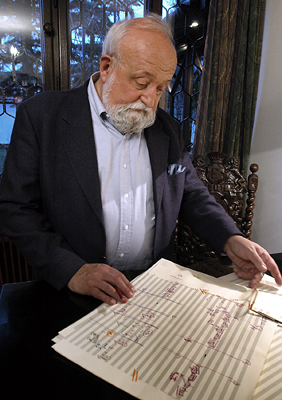
At his home in Krakow, Poland
-
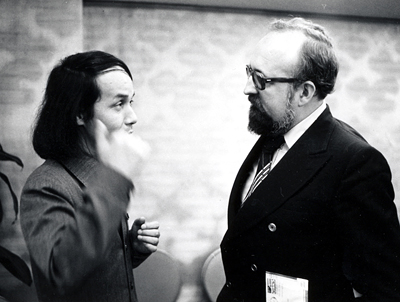
with Toru Takemitsu in Japan
-
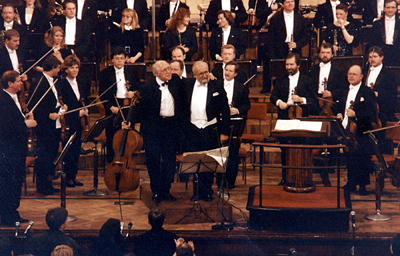
with Mstislav Rostropovich in Warsaw 1993
-
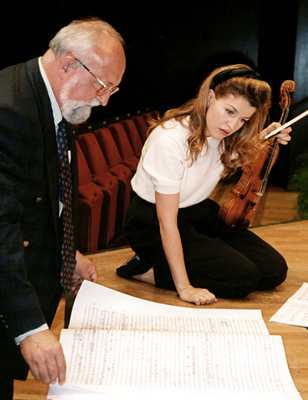
with Anne-Sophie Mutter in London 2000
-
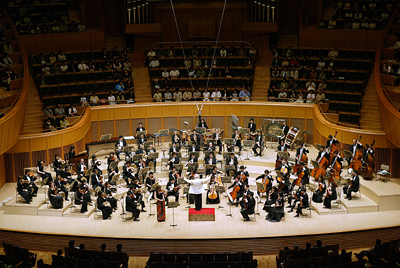
Sapporo Symphony Orchesta in Sapporo, Japan 2003
-
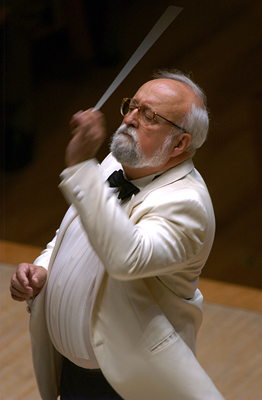
Sapporo Symphony Orchesta in Sapporo, Japan 2003
